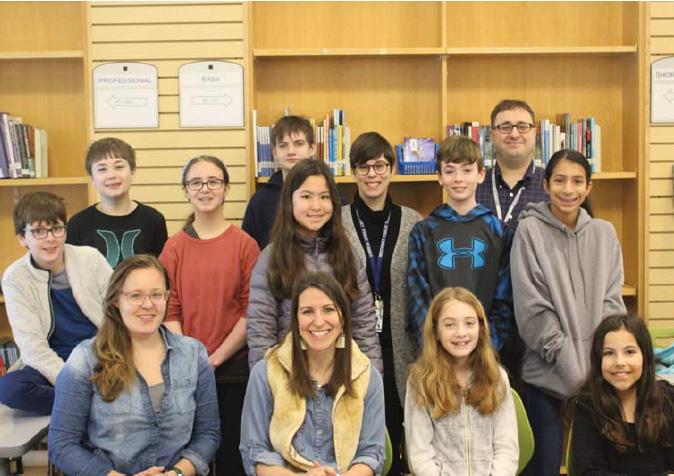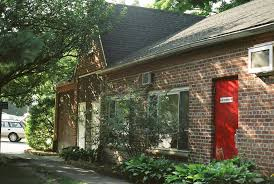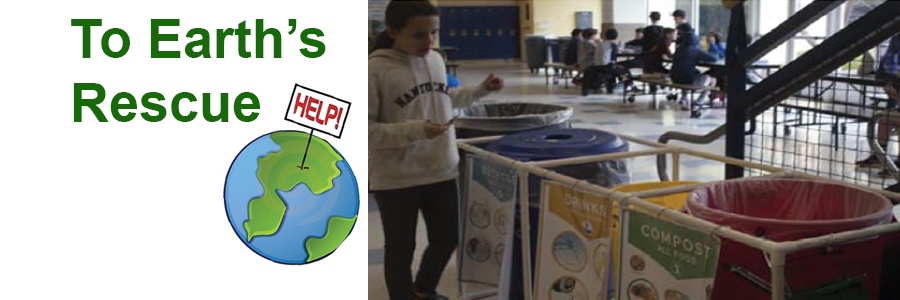New Club Helps to Decrease Waste
You may have heard the term eco before, but have you heard of the Eco Squad?
Global warming is being touted as the largest threat to the world. Scientist believe that the global temperature could rise two degrees by 2050, but they also say that we can stop this by reducing waste among other things. “But how can we do this?” you may ask. The Eco Squad has an answer.
Composting. “Composting is the main goal this year,” said Ms. Linda Kangro, one of the leaders of the Eco Squad.
Their goal is to add composting bins to every wave in the cafeteria. The 6th grader have been composting their lunch scraps for a month now. The 8th grade is scheduled to begin Wednesday, March 11.

The BMS students and teachers who make up the Eco Squad. The club meets in the LMS at 7:30 Wednesday mornings.
Compost is organic matter that has been decomposed in a process called composting. This process recycles various organic materials otherwise regarded as waste products and produces a soil that can be used for farming, gardening, and much more.
Other than that, the Eco Squad is looking into food rescue which is when a student has bought a piece of food or brought something from home and they don’t want to eat it even though it is perfectly good. You could then donate it to the cafeteria and then someone will pick it up and bring it to a food shelter, according to Ms. Linda Kangro.
So in this time of uncertainty, we can depend on food rescue and composting to stop global warming. According to “lh Power and Light” composting “directly reduces carbon dioxide (CO2) and other powerful greenhouse gases, like methane (CH4) and nitrous oxide (N2O).” Additionally, “Composting is an effective way to reduce greenhouse gas emissions,” and food rescue cuts down on waste. We can only hope that composting and food rescue can be installed in BMS soon the world is on the line.
The Benefits of Food Rescue
In the BMS cafeteria, during the 6th grade lunch wave, kids who are a part of Eco Squad are starting to collect food for food rescue.
Food rescue is when students take food that they haven’t eaten, and instead of simply throwing it away and creating waste, they give it to the Eco Squad so it can help make that food available to those in need.
What happens to this food you are donating?
First is it gets put into a bin. At the end of the week, a volunteer from the Gillespie Center in Westport comes and takes the food back to the center. Then, members at the Gillespie Center store the food until needed.
We talked to the director of the Gillespie Center, Ryan Soto.
“The way that the food rescue works is someone from the food rescue delivers food to the Gillespie Center twice a day. The food is typically eaten within 30 minutes to an hour.” He also added that, “Bedford has already started bringing food to the food rescue,” said Mr. Soto.
This is why it is so important that we don’t waste food.




